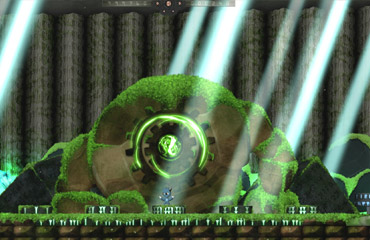Students work in teams and traverse the entire game development cycle from concept to executable game.
Students experience the entire software development life cycle of a game, working as a group of four students to brainstorm, develop, and produce a game from start to finish. Each student holds two of the following roles: storytelling, art and sounds, programming, and level design. Students traverse the game development process, beginning with concepting their game acquiring project management and agile development skills to create a working timeline. Students create a Game Design Document, a technical document that thoroughly describes the overall narrative, the platform and technology, and a detailed game storyline, and gives a clear description of the gameplay methods. Students then develop an initial version of their game which undergoes beta testing, a process in which students from other groups look for bugs and areas of the game that are weak narratively or gameplay-wise. Students iterate upon their game, making changes based on the feedback received, before publishing their game product to a shareable website where anyone can play it. Students apply the game development skills they have already learned in previous years throughout this process; the goal of the course is to experience the production process in a team environment, learn to adapt and solve problems, and create a visually and narratively stunning game project to enhance their portfolios.



